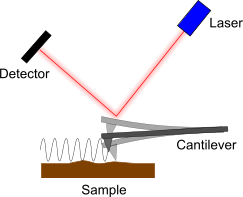
Acute Fluid-Mediated Neuropathy (AFM), also known as diffuse paralysis, is a paralytic disorder that attacks the peripheral nerves (muscle cells). The primary symptoms of AFM are sudden, intense weakness of one or more limbs; stiffness and heaviness in the trunk; increased sensitivity to light and sound; and decreased bladder and bowel control. AFM is caused by a build up of fluid (dyspnea) inside the blood vessels and cranial nerve roots, which cause an abnormal contraction of the muscle fibers and their subsequent restriction of blood flow to the affected muscles. Patients suffering from AFM may suffer from a recurrence of symptoms after surgery or immobilization.
Children with AFM generally experience rapid onset of floppy (rapid) limb or arm weakness, usually on the right side, followed by a complete loss of the motor nerve activity. In rare cases, symptoms may last for several weeks, causing great discomfort and distress to the child. In some cases, patients may be able to walk but not necessarily on their own.
The disease progresses gradually over time, resulting in a partial or total paralysis of the affected muscle groups
The severity of the disability depends on the age and development of the affected body system. Some children have no significant deformity with AFM, whereas others may suffer from such problems as limited hand and arm function, difficulty in swallowing or speaking, and even permanent partial paralysis of at least one limb or more. Infants with AFM may experience either progressive or local paralysis of the muscle groups. Other than limb weakness, AFM affects different parts of the nervous system and may affect the brain's motor functions.
Because AFM results from an underlying obstruction, it is difficult to diagnose in most cases and therefore treatment may take time. However, once you suspect that your child has AFM, it is important to seek the services of a qualified doctor and take him or her to a specialized neurologist who is familiar with the disease and its treatment options. He or she will first determine whether AFM is indeed the problem, then advise on the best course of treatment.
If the cause of AFM is related to an injury or deformation of the patient's spinal cord, the doctor can perform a procedure called a spinal decompression to improve the patient's mobility and ease pain and the associated stiffness. After the operation, a physiotherapist or occupational therapist may help the patient improve their daily activities, including their muscle strength and flexibility.
While your doctor may recommend medication or physical therapy, he or she cannot make a definitive diagnosis, but can refer you to a specialist who can. If your child's condition is suspected of having AFM, he or she may prescribe anti-inflammatory drugs, intravenous steroids, or an epidural steroid injection.
In most cases, the medications mentioned above do not prevent the motor nerves from regenerating themselves and thus the cause of AFM still remains unknown. This makes it difficult to treat the disease.
There are cases where the motor nerves are permanently damaged. In this situation, doctors use surgical methods to "kill" the motor neurons so that they regenerate. Surgery can correct the symptoms but will not cure the disease.
The procedure involves injecting tiny amounts of a substance into the nerve cells and using an instrument to suck out the nucleus. Once the nucleus is removed, the remaining nerve cells grow and spread around the spinal cord to replace the damaged ones. This procedure is known as an operative intervention for AFM.
Although surgery is the most effective treatment option for AFM, it is also the most expensive. It is not recommended for all children who have AFM.
Since AFM is so rare, it is crucial that the symptoms are observed and diagnosed by a physician to make sure that a proper treatment is prescribed. In case you suspect that your child has AFM, it is essential that you do your due diligence and seek medical help from a qualified physician.